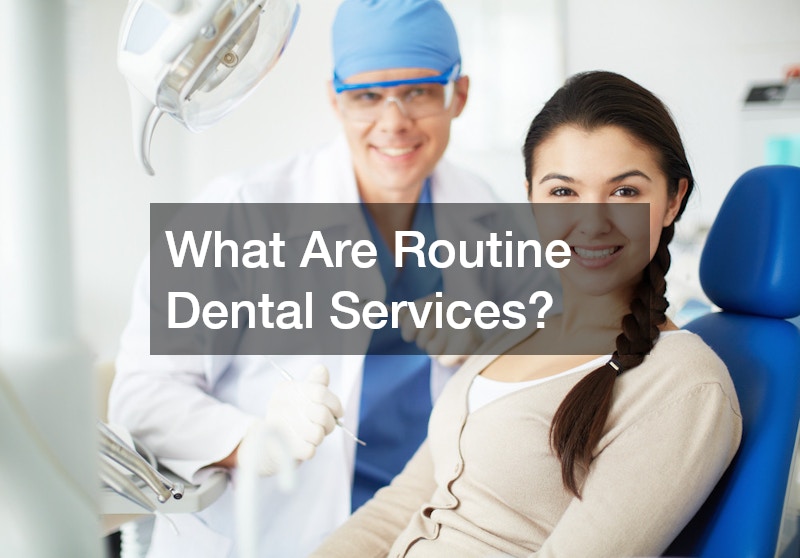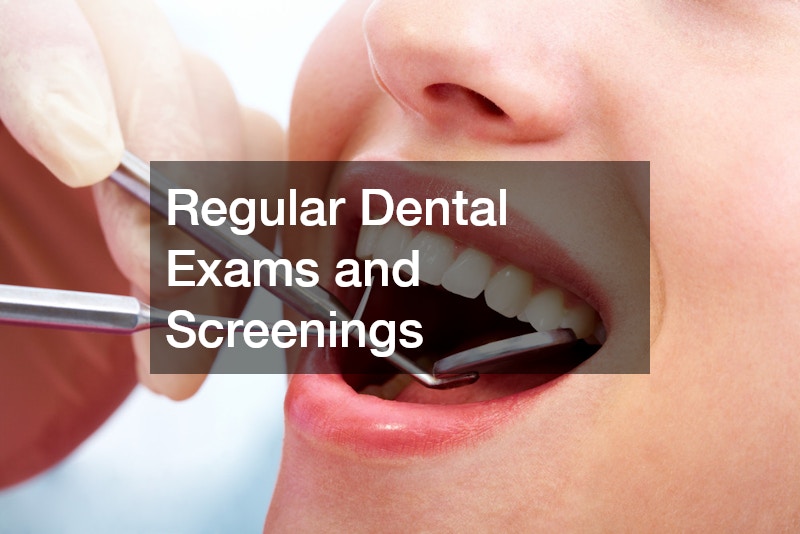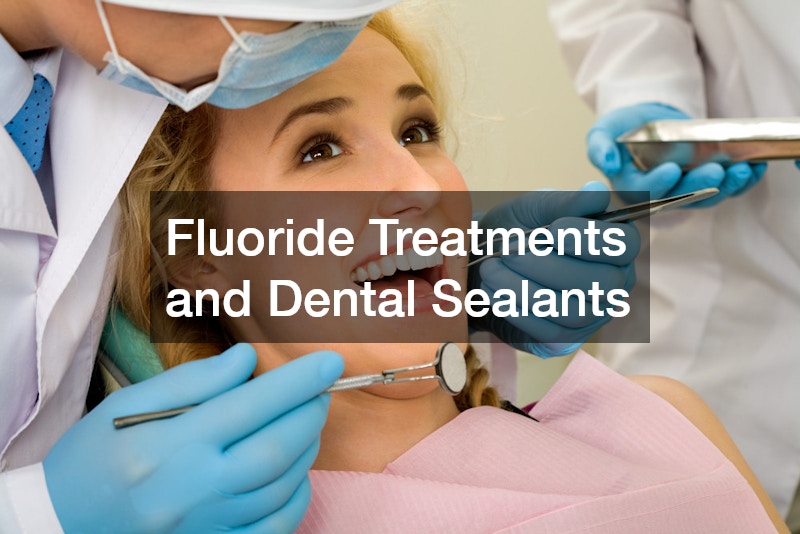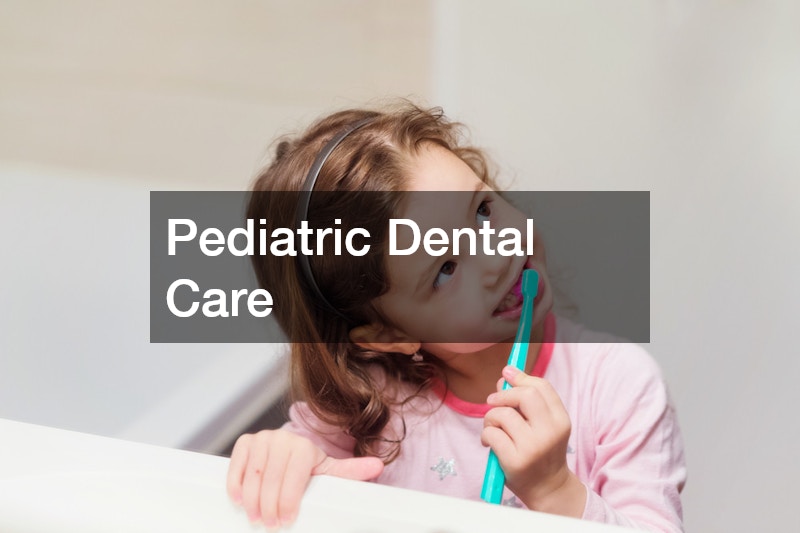
Maintaining your oral health is essential not only for a confident smile but also for your overall well-being. Routine dental services are the foundation of preventive care and play a crucial role in keeping your teeth and gums healthy throughout your life. While many people associate dental visits only with issues like cavities or toothaches, routine care is much more comprehensive. It involves regular checkups, cleanings, early detection of oral diseases, and education about at-home hygiene practices. Understanding the full scope of routine dental services can help you take proactive steps toward better oral and systemic health.
From childhood to older adulthood, these services evolve to meet your changing needs. A consistent relationship with your dental care provider ensures that potential problems are identified early, treated effectively, and often prevented altogether. This guide explores the many facets of routine dental services, how they benefit you at every age, and why they’re worth prioritizing.
What Are Routine Dental Services?
At its core, routine dental care includes professional cleanings, exams, and preventive treatments performed on a regular schedule—usually every six months. These services aim to keep your mouth in optimal condition and catch issues before they become serious.
During a typical visit, your dentist or hygienist will thoroughly clean your teeth, removing plaque and tartar that can’t be eliminated through brushing alone. They’ll also inspect your teeth, gums, tongue, and jaw for signs of decay, infection, misalignment, or other concerns. X-rays may be taken to check for hidden problems like impacted teeth or bone loss. In addition to these exams, fluoride treatments and sealants might be applied to strengthen enamel and prevent cavities, especially in children.
Routine dental services are about prevention first and foremost. By catching and addressing concerns early, you reduce your risk of needing more invasive and expensive procedures down the line. Whether you’re a child getting your first checkup or a senior managing long-term oral health, regular visits are essential.
The Role of Dental Cleanings
One of the most important elements of routine dental care is the professional cleaning. While daily brushing and flossing are vital, only a dental professional can remove hardened plaque (tartar) and perform deep cleaning in hard-to-reach areas. These cleanings help prevent tooth decay, gum disease, and even chronic bad breath.
Beyond hygiene, dental cleanings allow the dentist to examine your mouth for early signs of gum inflammation or gingivitis. Left untreated, gingivitis can evolve into periodontitis, a more serious form of gum disease that can lead to tooth loss and systemic health problems. Early intervention is key.
If you’ve ever felt the smooth, fresh sensation after a cleaning, you know how beneficial this service can be. It not only improves oral health but also enhances your confidence and overall comfort.
Regular Dental Exams and Screenings
Routine dental exams are more than just quick looks at your teeth—they are comprehensive assessments of your oral and sometimes systemic health. Your dentist will inspect each tooth, evaluate your gum health, examine your bite, and assess your jaw alignment. These exams are especially important for detecting cavities, wear and tear, signs of grinding or clenching, and issues like temporomandibular joint (TMJ) dysfunction.
In addition to examining the teeth and gums, dentists often perform oral cancer screenings as part of routine dental services. This involves checking the mouth, tongue, and throat for abnormal lesions, swelling, or discoloration that could signal early signs of cancer.
Early detection through these screenings can literally save lives. Many oral health conditions are painless in their initial stages, making regular exams the only way to identify them before they escalate.
The Importance of X-Rays
While visual inspections provide valuable information, some dental issues lie beneath the surface. That’s where X-rays come in. Dental radiographs allow your dentist to assess the health of tooth roots, detect infections, examine bone density, and identify impacted or misaligned teeth.
X-rays are typically performed once a year as part of your routine dental services, but your provider may recommend them more frequently depending on your oral health history or specific symptoms. Advances in digital radiography have made X-rays safer and faster than ever, with significantly reduced exposure to radiation.
Understanding what’s happening below the gum line gives your dentist a clearer picture of your overall oral health. This insight allows them to plan treatments accurately and catch hidden issues before they become emergencies.
Fluoride Treatments and Dental Sealants
Preventive care often includes fluoride treatments and dental sealants, especially for younger patients. Fluoride strengthens tooth enamel, making it more resistant to decay. It’s particularly beneficial for those at higher risk of cavities, including children, teens, and adults with dry mouth or weak enamel.
Sealants, on the other hand, are thin protective coatings applied to the chewing surfaces of back teeth. These areas are especially prone to cavities because food particles and bacteria can easily get trapped in the grooves. Sealants effectively shield these areas from decay for several years.
Although these treatments are often associated with children, adults can benefit as well. Your family dentist can recommend these services as part of a long-term preventive strategy for patients of any age.
Gum Health and Periodontal Care
Routine dental care isn’t limited to teeth—your gums are equally important. Healthy gums support your teeth and are essential to maintaining overall oral health. When plaque accumulates along the gumline, it can lead to inflammation, bleeding, and eventually gum disease.
Mild gum disease, or gingivitis, can often be reversed with improved oral hygiene and regular cleanings. However, more advanced cases require specialized treatment known as periodontics. These services may include deep cleanings (scaling and root planing), medications, and in severe cases, surgical intervention.
Early signs of gum disease are often subtle, so it’s critical to monitor your gum health through routine dental services. Healthy gums mean healthier teeth and better protection against systemic issues linked to periodontal disease, such as heart disease and diabetes.
Pediatric Dental Care
Children require specialized dental care tailored to their developing mouths. Routine visits help monitor the growth and alignment of their teeth, ensure proper oral hygiene habits are forming, and address common issues like thumb sucking or early cavities.
Local pediatric dentists are trained to work specifically with children, using kid-friendly techniques and language to ease anxiety and make visits enjoyable. Early exposure to dental care helps normalize the experience, reducing fear and promoting lifelong oral health.
Regular cleanings, fluoride treatments, sealants, and early orthodontic assessments are all part of a child’s dental routine. These services prevent more serious issues later in life and set the stage for strong, healthy teeth into adulthood.
Addressing Cosmetic Concerns Early
While routine dental services focus primarily on prevention, they can also play a key role in cosmetic care. For instance, regular cleanings help maintain whiter teeth, while consistent exams ensure that small issues like chips or stains don’t go unnoticed.
For more complex aesthetic concerns, many patients are referred to cosmetic dental offices that specialize in veneers, bonding, whitening, and alignment treatments. The foundation of any cosmetic dental improvement is a healthy mouth. Routine visits make sure your teeth and gums are in top condition before pursuing elective treatments.
Even services outside traditional dentistry—such as visiting a medical spa for facial enhancements—are more effective when your oral health is optimized. From a glowing smile to smooth skin, maintaining oral hygiene enhances the success of cosmetic procedures.
The Connection Between Dental and Overall Health
Oral health is deeply connected to your general well-being. Conditions like gum disease and tooth infections don’t just affect your mouth—they can impact your heart, lungs, and other organs. There’s growing evidence linking oral bacteria to conditions like endocarditis, respiratory infections, and even Alzheimer’s disease.
Routine dental services serve as a first line of defense, not just for cavities and gum disease but for broader systemic health. Your dentist can identify signs of nutritional deficiencies, immune disorders, and even stress through changes in your oral tissues.
Additionally, a visit to the dental office often includes discussions about habits like smoking, sugar consumption, and sleep disorders—all of which can affect both oral and systemic health. These conversations can help guide lifestyle improvements that benefit your entire body.
Replacing Missing Teeth With Implants
Losing a tooth doesn’t just affect your smile—it impacts chewing, jaw alignment, and long-term oral health. One solution that may be discussed during your routine visit is the use of dental implants. These permanent replacements are anchored into the jawbone, offering a natural look and feel.
Unlike dentures or bridges, implants don’t rely on neighboring teeth for support, preserving your bite and bone structure. Your dentist might recommend an implant consultation if they notice shifting teeth, bone loss, or difficulty chewing.
Because dental implants require healthy gums and strong bone density, maintaining routine care is essential. The better your oral hygiene, the more likely implants will be a viable and successful option if needed.
Integrating Dental Care With Aesthetic Medicine
It’s not uncommon for patients to seek cosmetic enhancements beyond dentistry, such as a lip filler service to improve facial balance or contour. Integrating these services with dental care ensures consistency and optimal results. A symmetrical smile paired with balanced facial features creates a youthful, harmonious appearance.
Collaborations between dental offices and providers like a local plastic surgeon or aesthetic clinic can streamline this process. Having a healthy, well-maintained mouth is essential before undergoing any facial procedure. Regular dental exams prevent infection, ensure good healing, and contribute to better cosmetic outcomes.
Whether you’re looking for a whiter smile, fuller lips, or improved facial symmetry, it all starts with healthy teeth and gums.
The Family Approach to Dental Health
Choosing a provider who offers family dental services can simplify your care by providing continuity and convenience. A family dentist understands your household’s unique needs and can tailor preventive care accordingly.
Routine dental services for families typically involve scheduling multiple appointments on the same day, tracking inherited oral health patterns, and providing education on shared hygiene practices. This comprehensive approach ensures that everyone—from toddlers to grandparents—receives consistent, personalized care.
Additionally, a family dental practice often creates a welcoming, familiar environment that eases anxiety and builds trust. Children who grow up visiting the same dentist are more likely to maintain good habits and prioritize oral health throughout life.
Creating a Personalized Preventive Plan
Everyone’s mouth is different. Some people are more prone to cavities, others struggle with gum sensitivity, and some face genetic risks that make frequent cleanings essential. That’s why routine dental services should always be tailored to your specific needs.
Your dentist may recommend more frequent visits if you have chronic conditions like diabetes or take medications that affect saliva production. Likewise, patients with braces, dental implants, or a history of periodontal disease may need more specialized care.
The key is working with your provider to develop a plan that fits your lifestyle, goals, and risk factors. Together, you can create a sustainable approach that protects your smile for the long haul.
Routine dental services are the foundation of lifelong oral health. From professional cleanings and exams to preventive treatments and early screenings, these services play a vital role in keeping your teeth, gums, and body healthy. They help prevent costly procedures, support cosmetic goals, and improve overall well-being.
Whether you’re visiting your dental office for a biannual checkup or coordinating care with a family dentist, the benefits of regular dental visits extend far beyond your smile. They set the stage for a healthier, more confident you.
With additional support from related professionals—such as cosmetic dental offices, local pediatric dentists, or even a medical spa offering a lip filler service—routine care becomes a gateway to total oral and facial wellness. Whether you’re exploring dental implants, managing gum health through periodontics, or seeking guidance from a local plastic surgeon, it all begins with consistent, high-quality dental care.
In the end, a healthy mouth is a powerful tool—not just for eating and speaking, but for expressing who you are. By prioritizing routine dental services, you’re making an investment in yourself that will pay dividends for years to come.




